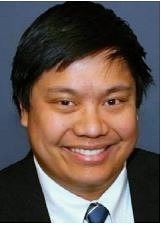Francis Neric, National Director of Certification |
Jan.
22, 2019

I love it when a plan comes together, don’t you?
As we turned the page to 2019, the ACSM CCRB and staff did so with a great deal of satisfaction and gratitude. In our continuous pursuit to support and serve those who dream of becoming ACSM certified, we achieved historical levels in first-time pass rates last year for the ACSM-CPT and ACSM-EP certification exams.
Probably more impressive than the higher pass rates was the dramatic spike in those rates from 2017-2018. Pass rates for the ACSM-EP exam increased 65 percent over 2017, while pass rates for the ACSM-CPT exam went up 18 percent. Here’s a look at our pass rate percentages over the last several years:
|
Exam
|
2014
|
2015
|
2016
|
2017
|
2018
|
|
ACSM-CPT
|
56%
|
54%
|
54%
|
56%
|
66%
|
|
ACSM-EP
|
45%
|
42%
|
42%
|
44%
|
71%
|
Notice I said those results were impressive, not surprising. That’s where our plan comes in.
The increased pass rates for these certifications are the net result of very intentional planning, review and assessment, and updating of the exams’ content by our board. This work included substantive changes to the exam content outline, increased transparency with faculty and exam candidates, and the application of the latest psychometric best practices.
In other words, it’s not about making the exams easier, it’s about increased preparation support and the way you ask questions.
The work began in 2017 when ACSM Certification completed its regularly scheduled job task analysis (JTA) study and update of the exams. The purpose of JTA revisions is to ensure that assessed knowledge, skill and abilities of exercise professionals reflect current professional standards and practice, as well as the latest health and fitness research.
The substantive changes to the ACSM-CPT and ACSM-EP exams mentioned earlier included the removal of business, marketing and management topics, revised weighting of content domains and inclusion of the new pre-participation screening algorithm.
To provide greater transparency, ACSM included levels of cognitive complexity to its exam content outlines, which describe the extent to which a candidate should know or be able to perform a job task. ACSM uses three levels of cognitive challenge: recall, application and synthesis.
Implementing the latest psychometric best practices included, but is not limited to, eliminating negatively worded items, complex multiple-choice items, and/or inclusion of multimedia assets.
In the end, the positive results of this work go far beyond just rising pass rates. Our ultimate success measure is how we support ACSM certified professionals and candidates in achieving professional success. ACSM Certified Professional Liz White provided clear validation that we are doing just that with the ACSM-CPT and ACSM-EP exams when she said “ACSM did a great job wording the questions on this updated exam compared to the last version. I can’t even express how much better the exam was overall!”
So, that was the plan and those are the dramatic results. If you’re interested in more information about our process, including comparative data, the revised ACSM-CPT and/or ACSM-EP content outlines and cognitive complexity examples, visit our information page.
 Francis Neric, MS, MBA, is the national director of certification for the American College of Sports Medicine (ACSM). Neric leads the development and administration of ACSM's state-of-the-art certification programs. He also serves on the Committee on Accreditation for the Exercise Sciences (CoAES) and Coalition for the Registration of Exercise Professionals (CREP) which directly supports the mission, vision, and values of the college. Neric has a BS degree in exercise science from CSU Long Beach, a MS degree in clinical exercise physiology from CSU Fullerton, and an MBA in management from the University of Colorado at Colorado Springs.
Francis Neric, MS, MBA, is the national director of certification for the American College of Sports Medicine (ACSM). Neric leads the development and administration of ACSM's state-of-the-art certification programs. He also serves on the Committee on Accreditation for the Exercise Sciences (CoAES) and Coalition for the Registration of Exercise Professionals (CREP) which directly supports the mission, vision, and values of the college. Neric has a BS degree in exercise science from CSU Long Beach, a MS degree in clinical exercise physiology from CSU Fullerton, and an MBA in management from the University of Colorado at Colorado Springs.